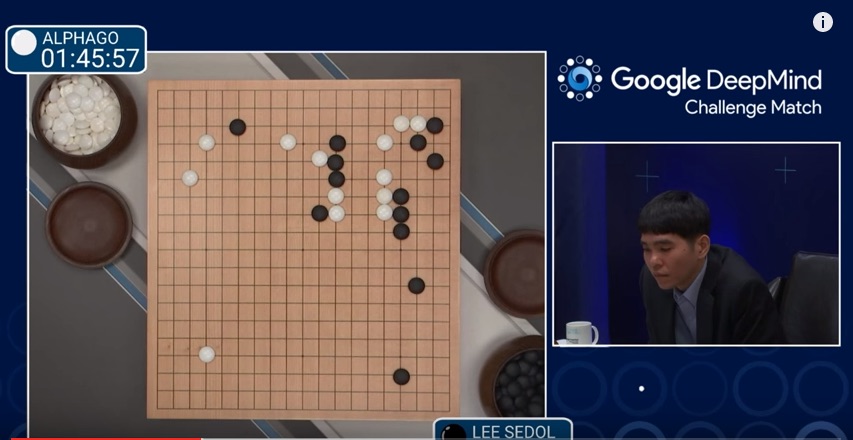
An artificial intelligence system developed by Google has trounced a world champion Go player in the first of five planned matches.
The program, called AlphaGo, is currently facing off with former world champion Lee Sedol in a historic five-day matchup in South Korea. Both players are considered the best of their kind: AlphaGo recently bested the European Go champion, Fan Hui, while Sedol is considered the best living player of the strategy game, which many consider the most complicated game in the world. [Super-Intelligent Machines: 7 Robotic Futures]
So far, things are not looking good for the human.
In the first match, AlphaGo roundly defeated Sedol, who was visibly shocked by the outcome.
"I didn’t know AlphaGo would play such a perfect game," Sedol said in a news conference Wednesday (March 9).
Other professional players were also blown away by AlphaGo's performance.
"When Google said the odds were fifty-fifty, it seems they weren't joking," Cho Hanseung, a top professional Go player, told GoGameGuru, a Go enthusiast website. "I still can't believe its performance, even though I just saw it with my own eyes."
Get the world’s most fascinating discoveries delivered straight to your inbox.
AI Grand Challenge
The defeat of Hui in January was seen as a triumph of artificial intelligence. Go has often been considered one of the grand challenges in the field, owing to the incredible number of potential moves — each turn requires deciding among 200 potential moves, compared to a relatively modest 20 in chess.
"It's probably the most complex game devised by humans," AlphaGo co-inventor Demis Hassabis, a computer scientist at Google DeepMind in London, said Jan. 26 in a news conference. "It has 10 to the power 170 possible board positions, which is greater than the number of atoms in the universe."
To break this problem into more manageable bites, the team coded AlphaGo (which was developed by Google's DeepMind unit) to use separate "learning" networks. A so-called value network looks at the state of the board to decide who is winning, while a policy network evaluates potential moves. The program trains itself by watching and then playing millions and millions of games.
While AlphaGo may, in the end, rout Sedol, it's not completely fair to say the competition was an even fight. AlphaGo practiced for his matchup against Sedol by watching many of the reigning champion's matches, while Sedol had much less exposure to AlphaGo's playing style. In addition, Sedol seemed to be off his game and made a few errors, but still managed to retake the lead at several points during the game, according to GoGameGuru's commentary of the match.
A few years ago, or even a few months ago, this result would have been inconceivable. Up until now, the best artificial intelligence Go players were only as good as amateur players, and most experts in the field believed it would be years before the best AI players could compete against the best humans.
The first match was broadcast on YouTube, and those who want to watch the second match can tune in at 11 p.m. EST tonight (March 9), also on YouTube.
Follow Tia Ghose on Twitter and Google+. Follow Live Science @livescience, Facebook & Google+. Original article on Live Science.

Tia is the managing editor and was previously a senior writer for Live Science. Her work has appeared in Scientific American, Wired.com and other outlets. She holds a master's degree in bioengineering from the University of Washington, a graduate certificate in science writing from UC Santa Cruz and a bachelor's degree in mechanical engineering from the University of Texas at Austin. Tia was part of a team at the Milwaukee Journal Sentinel that published the Empty Cradles series on preterm births, which won multiple awards, including the 2012 Casey Medal for Meritorious Journalism.
